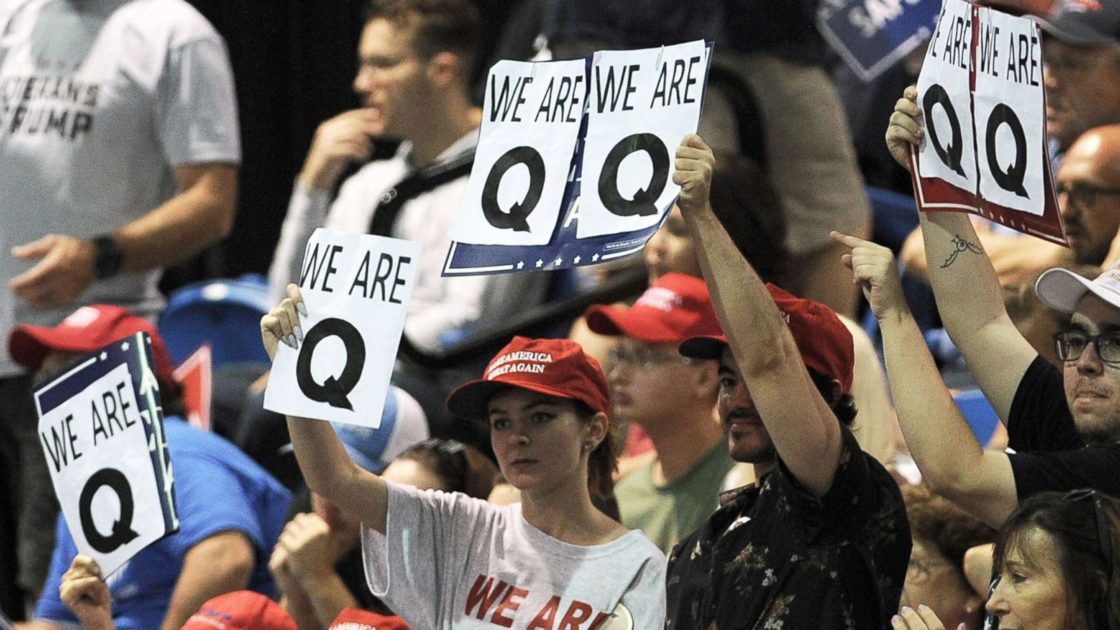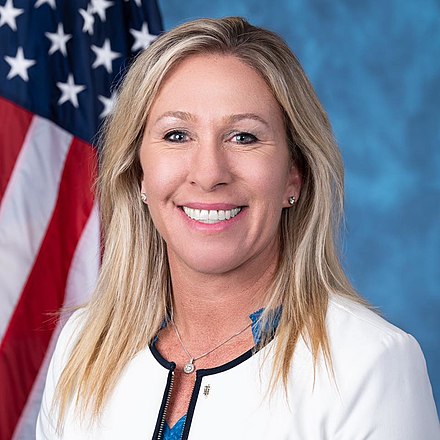Last week, the U.S. House of Representatives voted to expel Rep. Marjorie Taylor Greene from committee. Democrats were joined by a handful of Republicans in condemning Greene for her past comments. In the past, she has stated that mass shootings were staged, Jewish space lasers had caused the California wildfires, called for the execution of prominent Democratic members of congress and many other absurd statements. Greene was defended by many of her GOP colleagues who said the Democrats were attempting a “power grab” by punishing Rep. Greene.
The debate that was held about Rep. Greene goes beyond the congresswoman herself and well beyond the walls of the Capitol. The debate is about whether or not people can spread false information and what, if any, repercussions should be enforced.
Rep. Greene belongs to a larger group of people whose beliefs about the government and the people who run it are quite cynical. Rep. Greene belongs to QAnon. After being confronted by her colleagues on her past comments and while facing expulsion from the house education committee, Greene has walked back many of her statements in order to distance herself from QAnon. QAnon began on the website 4chan back in October of 2017. A person who only identified themselves as “Q” reported that they had a high level of government clearance and they were leaking information through 4chan. Followers of “Q” began to believe in this theory which became known as QAnon.

QAnon has come to encompass a large group of people and many different beliefs. But at its core, QAnon believes that the United States is run by a deep state cabal of satanic-pedophiles and the only person who will stop it is Donald Trump. The group has come to believe in a slew of other disproven theories such as those held by Rep. Greene and many more. It could perhaps best be described as a home for all conspiracy theories. Things like JFK was killed by the CIA, the moon landing was faked, 9/11 was an inside job and so on and so forth. In recent days, many supporters of QAnon have begun to spread the belief that on March 4, Trump will once again be President and that Joe Biden actually never became President.
QAnon supporters have engulfed much of the internet by spreading their beliefs like wildfires. Many people have unknowingly become supporters of QAnon as they have come to believe at least some parts of the theory and share the posts on their timelines. The question is: what should be done about QAnon and disinformation in general? On one hand, some believe it is not the job of social media sites to hire independent fact checkers to remove posts. Others fear what might happen if these conspiracy theories are given legitimacy. The group has gotten strong support over the past few years and has become only stronger in the midst of the pandemic; a pandemic which many QAnon supporters say is not even happening.
A few years ago, a woman who said school shootings were staged and wildfires were started by Jewish space lasers would likely have no chance at making a successful run for the U.S. Congress. But because of QAnon, Rep. Greene was able to do just that. It was with the help of disinformation and QAnon that thousands of people stormed the Capitol and led to the death of both police officers and rioters. And it is also through this same system that many have come to believe that it was ANTIFA, disguised as Trump supporters that stormed the Capitol. That is, of course, despite the truth that many of those who were arrested had a history of being QAnon supporters.
Those who start these QAnon theories obviously have no regard for the truth. Perhaps their end goal is to garner support for certain political candidates and policies by vilifying the other side. Or perhaps there is no end goal. Perhaps there truly are millions of people who believe wholeheartedly that Hillary Clinton gets her strength by drinking the blood of children. Whatever the goal of QAnon is, one thing is obvious: disinformation and conspiracy theories have had an affect on the American political system. That is evidenced by the election of Rep. Greene. What the role of QAnon and other disinformation campaigns will be in future elections remains to be seen. Will more people like Rep. Greene be elected to office? Will the Republican party outright condemn QAnon rhetoric such as the rhetoric used by Rep. Greene; and if so, will that turn away some voters from the Republican party? Many of those questions will likely be answered in the 2022 midterm elections.


